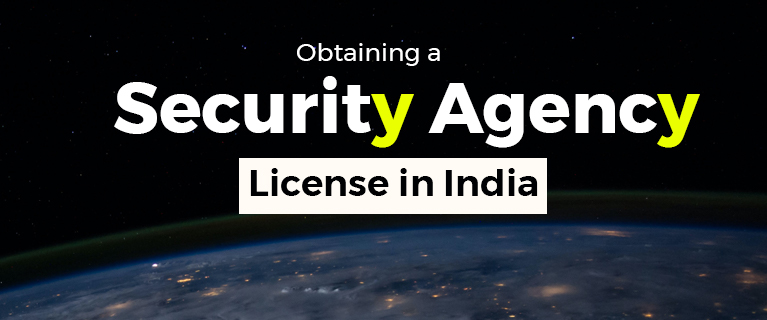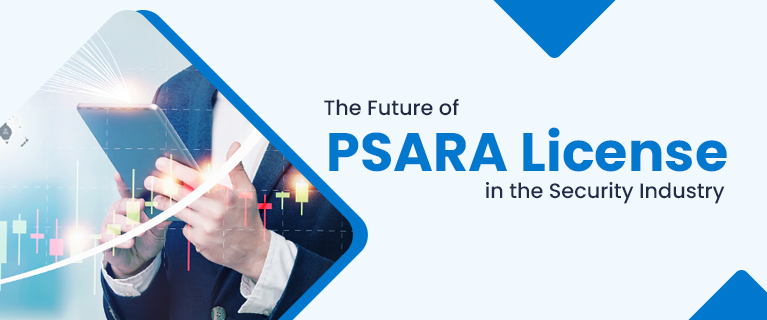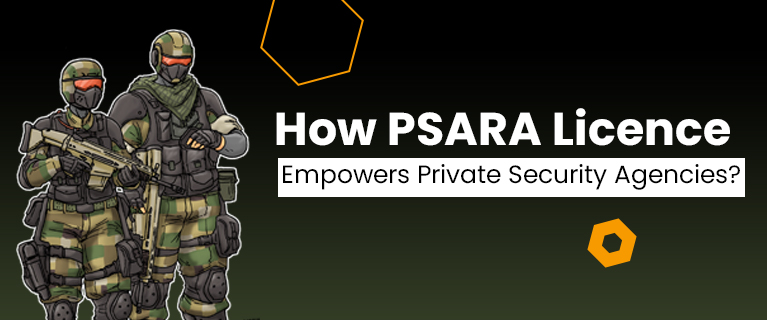Obtaining a Security Agency License in India?
Operating a security agency in India requires obtaining a license under the Private Security Agencies (Regulation) Act, 2005 (PSARA). This license ensures that your agency operates legally and adheres to the necessary regulations to provide security services. Here's a step-by-step guide to obtaining a security agency license:
Step 1: Eligibility Check
Ensure that you meet the eligibility criteria set by the PSARA Act. This includes:- Being an Indian national or an organization that holds an Indian registration.
- Having a minimum paid-up capital as specified by the regulatory authority.
- Not having any criminal record.
- Meeting the prescribed qualifications for directors, partners, and key personnel.
Read also this - How can you Register for a PSARA LicenseStep 2: Choose a Legal Structure
Decide on the legal structure of your security agency, such as a sole proprietorship, partnership, LLP, or private limited company.
Step 3: Name Reservation
Choose a unique and relevant name for your security agency. Verify the name's availability and reserve it through the Ministry of Corporate Affairs' portal.
Step 4: Obtain Digital Signature Certificate (DSC)
All directors, partners, or authorized signatories must obtain a Digital Signature Certificate (DSC) to ensure secure online filing.
Step 5: Draft Memorandum and Articles of Association
If registering as a company (LLP or private limited), draft the Memorandum of Association (MOA) and Articles of Association (AOA) outlining your agency's objectives and operations.
Step 6: Register with Regulatory Authority
Apply for a security agency license from the appropriate government authority in your state. Submit the application along with required documents, which may include:
Application Preparation: Create the application form required for obtaining the security agency license. The relevant form can typically be downloaded from the website of your state's regulatory authority.
Gather Required Documents: Assemble all the necessary documents stipulated by the application form. These documents generally include:
Application Submission: Complete the application form, attach the required documents, and submit it to the appropriate government authority in your state. Payment of the prescribed application fee may also be necessary.
Step 7: Background Verification
Undergo a comprehensive background verification process for directors, partners, and key personnel to establish their credibility.
Step 8: Submit Application
Submit the completed application form along with all required documents to the regulatory authority.
Step 9: Application Review and Inspection
The regulatory body will examine your application and supporting documentation. They may also conduct an inspection of your agency's premises.
Step 10: Approval and License Issuance
If your application is found to be complete and in compliance with all regulations, the regulatory authority will grant the security agency license.
Step 11: Compliance and Renewal
Once you obtain the license, ensure ongoing compliance with all regulations and maintain accurate records. The license needs to be renewed periodically as per the regulatory guidelines.
To sum up, in order to apply for a security agency license, follow this step-by-step process that begins with preparing the necessary application form, which can often be downloaded from your state's regulatory authority website. Alongside the form, gather essential documents including the Memorandum and Articles of Association (MOA and AOA if applicable), copies of PAN and Aadhaar cards for directors/partners, proof of the registered office's address, financial statements, police verification certificates for key personnel, and an undertaking of compliance with the PSARA Act.
After completing the application form and assembling the required documents, submit the application to the relevant government authority in your state. Be prepared to pay the prescribed application fee. Following this, undergo a thorough background verification process for directors, partners, and key personnel to ensure their credibility.
Upon submission, the regulatory body will review your application and accompanying documents. They might also conduct an inspection of your agency's premises. If your application aligns with all regulations and is deemed complete, the regulatory authority will approve and issue the security agency license.
Read also this - Introduction to Security Agencies LicenseAfter receiving the license, it's crucial to maintain ongoing compliance with regulations and keep accurate records. Remember to renew the license periodically according to the guidelines set by the regulatory authority. This process ensures that your security agency operates lawfully and effectively within the bounds of the law.
Conclusion
Obtaining a security agency license in India is a detailed process that involves meeting eligibility criteria, submitting documents, and undergoing background verification. By following these steps and seeking guidance from legal and regulatory experts, you can successfully obtain a security agency license and operate a legitimate and law-abiding security business in India.




Comments
Post a Comment